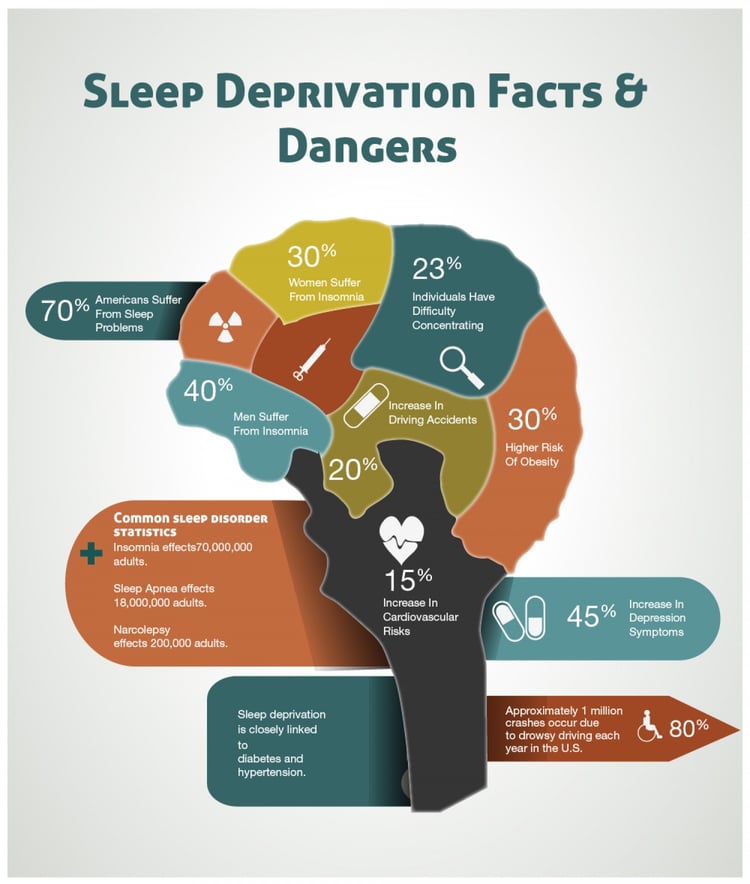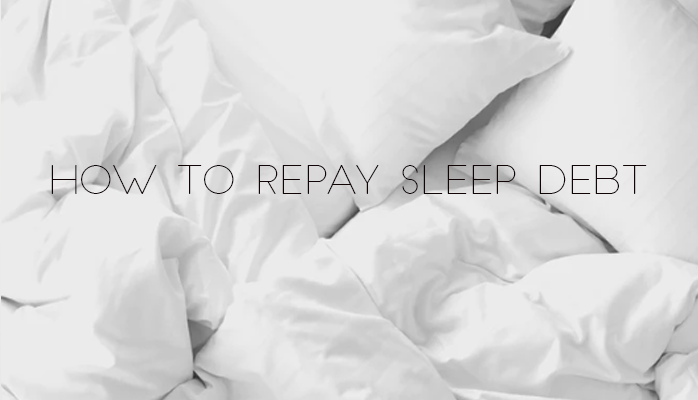What is Sleep Debt?
A “sleep debt” is a common term that refers to the amount of sleep you get that is less than the amount of sleep you need. The way we generally understand it is that over time, a “debt” forms where you need to “catch up” on sleep to be healthy again.
To put it a different way:
- Your body requires a certain about of sleep, which is different depending on your age
- As you get less sleep than required, you become sleep deprived
- This sleep deprivation causes a “debt” which you have to “pay” by sleeping more than the required amount
Sleep debts are extremely important to correctly understand, because there are common misconception about what a sleep debt is and how you “repay” it. Most people are under the false assumption that they can “repay” their sleep debt much like you repay any monetary debt: in large sums. Unfortunately, it doesn’t work this way.
What is Binge Sleeping?
A common occurrence is that the work week gets very busy and most individuals are unable to get the required minimum hours of sleep. Then, on the weekends, they sleep 10-12 hours, trying to make up what they missed. This is one of the most pervasive myths about sleep is that it can easily be made up in lump sums of slumber.
How Much Sleep Do We Need?
Commonly expected ranges of sleep we need are [National Sleep Foundation]:
- <1 year: 12-17 hours per day (more sleep for newborns than toddlers)
- 1-2 years: 11-14 hours
- 3-5 years: 10-13 hours
- 6-13 hours: 9-11 hours
- 14-17 hours: 8-10 hours
- 18-65: 7-9 hours
- 65+: 7-8 hours
Due to individual differences, these numbers are simply guidelines, but there is a plethora of sleep research that corroborates these are good goals for most people to aim for.
How to Repay Your Sleep Debt
The word debt is misleading because sleep debt doesn’t work like money debt - it cannot be paid back in one or two lump sums. Sleep studies show that getting one or two long nights of sleep do not remove the effects of sleep deprivation. You might feel good for the hours proceeding a long night of rest, but the effects of sleep deprivation will persist.
The best way to repay your sleep debt is by establishing a healthy pattern of sleep over time. In the same scenario above, what you would want to do to repay your sleep debt is:
- Get extra sleep on the weekend
- Get enough or a little extra sleep every day the following week
Repaying sleep debt involves consistent, restful sleep until the effects of sleep deprivation are gone.
Effects of Sleep Deprivation

Sleep deprivation causes lower performance physically, emotionally, and mentally. Some specific effects are:
- Lower sex drive
- Less able to manage stress and anxiety
- Less likely to get requisite exercise due to fatigue
- Underperform at work, school, etc.
- Chronic irritability that can interfere with relationships
- Less engagement in activities
- More brain fog and general apathy
- The emotional impact of general inactivity due to fatigue
In short, chronic sleep deprivation can make you feel “abnormal,” less like yourself, a “worse” version of your normal self, and so on. Over time, these feelings and physical symptoms of sleep deprivation can weigh on our emotional and physical vitality. Alone or compounded with other symptoms, this can lead to depression.
Sleeping Disorder that Cause Sleep Deprivation
Sleeping disorders can lead to sleep deprivation if not treated. Some of the most common sleep disorders that generally result in chronic and sometimes severe sleep deprivation are:
- Sleep apnea
- Insomnia
- Restless leg syndrome
- Circadian rhythm disorders
If you are struggling with chronic sleep deprivation, please click the orange button below to take a free online sleep test and talk with one of our sleep health professionals.


